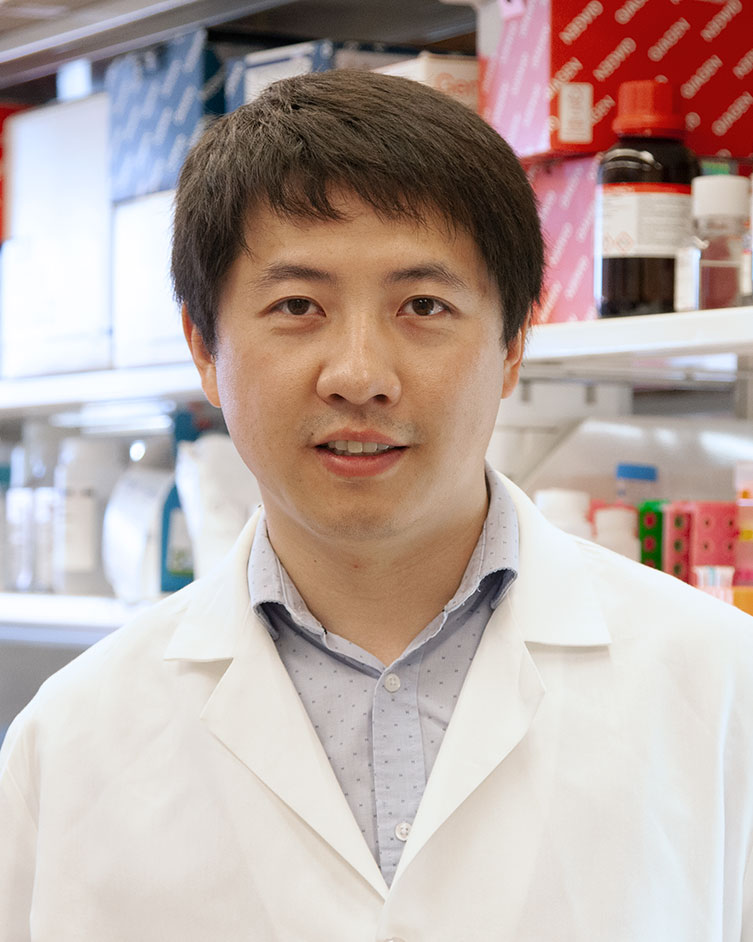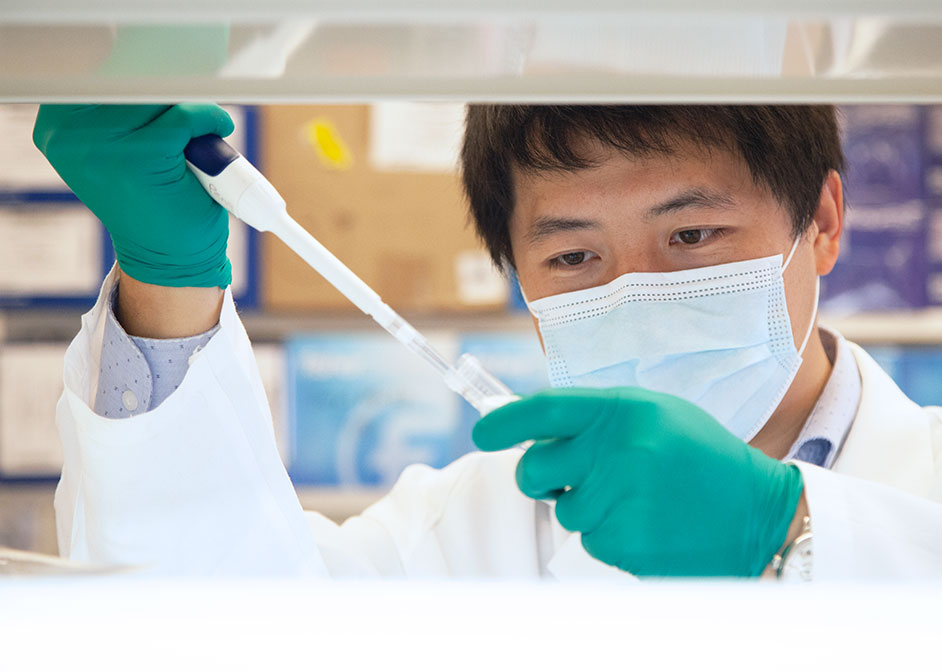Association Awarded Hou’s Abstract on Cancer Immune Regulators
The American Association for Cancer Research granted University of Houston biology and biochemistry postdoctoral fellow Jiakai Hou a 2021 AACR-AbbVie Scholar-in-Training Award for his abstract on cancer immunotherapy.

The AACR gave more than a dozen AACR-AbbVie Scholar-in-Training awards to high-performing early-career scientists across the U.S., thanks to sponsorship support from AbbVie, a biopharmaceutical company.
Hou does research at UH’s College of Natural Sciences and Mathematics, specifically at the Center for Nuclear Receptors and Cell Signaling. He works under the guidance and mentorship of Weiyi Peng, assistant professor of biology and biochemistry.
He joined the University last March from M.D. Anderson Cancer Center, where he was also a postdoctoral researcher. Hou followed in the footsteps of Peng, who was an assistant professor at the cancer center before joining UH.
Hou’s abstract discusses the landscape of tumor-intrinsic immune regulators, using the genome-wide CRISPR-Cas9 immune screening, integrated with clinical data analysis. These tumor-intrinsic immune regulators are key players that come from within tumor cells to regulate onco-immune response. CRISPR is a potent tool researchers use to edit parts of the genome through depleting, inserting or altering sections of the genomic DNA sequence.
Finding New Targets to Improve Cancer Immunotherapy Success
Hou explains that despite approval of immunotherapy for a wide range of cancers, patients do not always respond positively.

“Although the medicine is very powerful with immunotherapies, only around 30% of patients have a good response,” he said. “That means only 3 out of 10 cancer patients respond to this therapeutic method. Also, sometimes patients respond well after an initial treatment, but then relapse.”
Hou’s abstract is based on a paper published in the Journal for ImmunoTherapy of Cancer, in which he is first author. In it, he writes failure to respond to immunotherapies may be attributed to immunosuppressive mechanisms taken on by tumor cells.
To identify these mechanisms in non-responders, Hou and collaborators performed the CRISPR immune screening and incorporated those results with bioinformatics clinical data from the National Cancer Institute’s The Cancer Genome Atlas Program.
Their studies showed two new distinct types of immune resistance regulators and demonstrated their potential as therapeutic targets to improve the efficacy of immunotherapy.
Award-Winning Abstract Despite Pandemic
Peng, principal investigator and corresponding author of the paper, describes Hou as a talented and dedicated postdoctoral fellow.
“Despite the challenges brought by the COVID-19 pandemic, he successfully completed studies which aim to identify novel tumor immune evasion mechanisms,” she said. “The results from his studies provide a series of new therapeutic targets to increase the likelihood of anti-tumor immune responses. Currently, we are actively working with physicians at the Texas Medical Center to apply his preclinical findings into clinical trials to improve the effectiveness of cancer immunotherapy.”
In turn, Hou thanks Peng for her work and guidance on the study.
“I want to thank her and all the collaborators on this paper,” he said. “Without their help, I could not have achieved this award.”
Other authors include Chunyu Xu, Ritu Bohat, Nicholas A. Egan, Xiaofang Liang from UH’s Department of Biology and Biochemistry, Arash Saeedi and M.D. Anderson Professor Navin Varadarajan from UH’s Department of Chemical and Biomolecular Engineering, Yunfei Wang, Leilei Shi, Yuan Chen, Ke Pan, Jodi A. McKenzie, Rina M. Mbofung, Leila J. Williams, Zhenhuang Yang, Ming Sun, Jordi Rodon Ahnert, Cassian Yee and Yiwen Chen from The University of Texas M.D. Anderson Cancer Center, and Patrick Hwu from the Moffitt Cancer Center.
Thanks to the award, Hou will attend AACR’s Annual Meeting, which takes place May 17-21, 2021.
- Rebeca Trejo, College of Natural Sciences and Mathematics